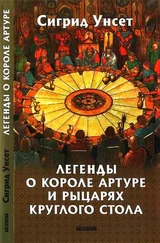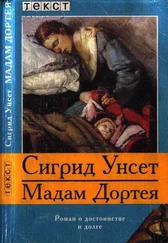Cole knew the school he went to was expensive, as the schools his parents had gone to were expensive, so expensive that they’d had to keep paying the bills for years after they weren’t in school anymore. He knew they were worried about paying for his own education for years to come, and he wished he could bring them around to his own view, which was that school was not worth it.
As Cole understands it, if things had been different—if his parents had not had to work so hard all the time, and if they had not had to worry so much about money—he would have been born sooner. But he has always wondered about this. If he had been born sooner, on a different day in a different year, would he be exactly the same? Would he still be himself?
And if they had never moved, if they had stayed in Chicago, would his parents still be alive? Cole thinks the answer is yes, even though he knows that many people got sick and died in Chicago, too. In the big cities, so many people died so fast that bodies kept piling up and there were corpses everywhere, even outdoors. It is another one of Cole’s guilty secrets that he wishes he could have seen this with his own eyes. That, and the riots.
Cole has heard people call Tracy pretty, but again he has no opinion about this. Or rather his opinion is that although grown-ups can sometimes look good in photos or in movies or from far away, up close there is always something blotchy or hairy or saggy, and most grown-ups, even the ones who don’t smoke, smell.
The big exception was his great-grandmother, Ginia, whom he’d met only once, when he was six. Ginia was old but her face was freakily beautiful, like something carved out of soap, with eyes like Blue Jay marbles. She was teensy . A grown-up no bigger than himself! He could not see how anyone could stand, let alone walk, on such matchstick legs. When he thinks of her now, he thinks of an egret.
But she, too, had a smell. And in general old people are the ugliest and smelliest people of all.
He has always been sensitive to smells, but since his illness he is more so. His memory may be worse, but his senses seem to have got better. He is sure he hears better than he used to. PW says it’s because Cole has never lived so far out in the country, where it’s so quiet, especially at night. But being in the country is not a whole new experience for Cole. He has been to the country on vacations, and he has been to summer camp.
From school he knows that Native Americans had much sharper vision and hearing than the white settlers had, and he likes to pretend he is one of them, a brave (how he loves that word), able to hear a fly land on the windowsill.
Riding a horse, he has also imagined himself a brave, nothing between him and the horse’s warm, broad back. He has never understood why white people invented the saddle.
Tracy and PW say the Indians were not the first people in America, there were white people here before them. Cole is surprised to hear this. He is sure that’s not what he learned in school—unless it’s one of the things he no longer remembers.
It was his mother who’d pointed out that it was only human smells that bothered him, which is true. But then it is also true that he likes animals more than he likes people. He does not mind the smell of horses or dogs; in fact, he thinks horses and dogs smell good. He has never been bothered by the smells in a zoo. He could stay in the monkey house all day long. But once when he was sitting on a park bench and a homeless man sat down beside him, he had jumped up and fled without even caring that the man’s feelings might be hurt. He does not feel so guilty about this because he knows he’s not the only one who’d find the man’s smell worse than a monkey’s. But he has always wondered: why was that?
Besides keeping house, Tracy does church work, of which there seems to be no end. She is good with her hands, and in every room of the house there are things—quilts, pillows, ceramics—that she has made. Though constantly busy, she is always looking for more to do. (“Devil ain’t gonna catch this lady with idle hands.”) Yet the word Cole is unable to separate from Tracy is lazy .
They don’t read, and they can’t write to save their lives. They’ve never heard of most of the presidents of the United States, they think America won the war in Vietnam, they think Prohibition was a law that made it illegal to own slaves.
That was Cole’s father, fuming about his students. Cole suspects at least some of this could also be said about Tracy.
And it’s not just what they don’t know, it’s what they don’t want to know .
Tracy is what his father would call intellectually lazy.
Every time this thought occurs to Cole, he feels guilty.
Not that he would even care, if Tracy wasn’t his teacher.
The hours he spends on lessons with her are torture. He cannot hide his feelings completely, but fortunately everyone thinks he’s just a normal red-blooded boy who’d rather be off riding his bike, say.
Though he has shared some of his secrets with PW, about Tracy he knows he will never be honest.
HE REMEMBERS HIS LAST DAY OF SCHOOL as if it were yesterday, and at the same time as if it were very long ago. He was still the new boy then. He and his parents had moved from Chicago during Christmas vacation.
His father said, “I know how hard it is for you to leave all your friends and jump in with a whole bunch of new kids in the middle of the year. But try to think of it as an adventure.”
His new homeroom teacher, who reminded him of his father but whose name Cole can no longer recall, made Cole stand in the front of the room and introduce himself. Cole had never felt so exposed. (That night he dreamed he was standing in front of a roomful of strangers again, this time naked .)
Hating the teacher, avoiding eye contact with the two kids he instantly picked out as bullies, he prayed his voice would not crack. One bully glared at him the whole time; the other kept his eyes mostly shut. A boy in the front row with a face practically buried under freckles listened to every word with his mouth open, as if Cole were explaining sex. Two girls farther back put their blond heads together and whispered about him (what else?). Everyone else looked as if they weren’t listening, Mr. What’s-his-name (staring out the window) included.
Cole kept it short. He was from Chicago, he didn’t have any brothers or sisters, his father was a history professor, his mother was a lawyer. Or rather she used to be a lawyer, but not anymore.
A hand shot up. (The teacher had encouraged questions.) How come his mother stopped being a lawyer?
Cole shrugged. She didn’t like it, he said. He did not say because it was a dull, heartless profession full of people who cared only about money, as his mother always said when people asked her.
His father used to say, “Serena, you should’ve been born rich. You’re just not cut out to work.” But in fact, except for right after Cole was born, his mother had always worked at one job or another. It was true she had hated most of those jobs. But about a year before they moved she’d started working as the manager of a small theater company, a job she had loved. “If only it paid more!” (Always, the problem was money.)
Cole didn’t tell any of this to the class. He didn’t say anything about the fights his parents had had about moving. His mother said it wasn’t fair. Just when she’d finally found a job that was right for her! She blew up when his father said she could always find something similar where they were going.
“Don’t patronize me, Miles.”
Читать дальше













